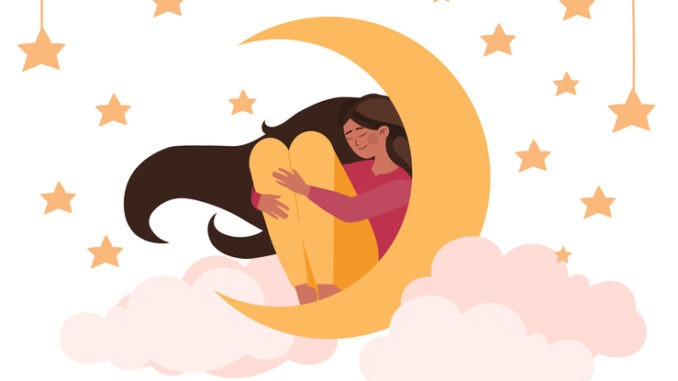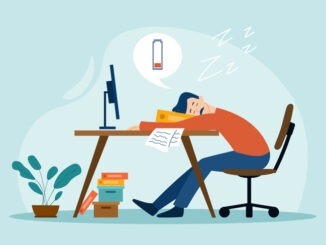
Psychologist Aric Prather shares his best suggestions for a good night sleep
CREDIT: This is an edited version of an article that originally appeared on The Guardian
Regardless of your specific goal – whether it be to lose weight, reduce stress, get fitter, advance at work, or be a better friend or partner – it is hard to achieve anything when you have had insufficient sleep. In his book, The Seven-Day Sleep Prescription, Aric Prather shares his strategy for ‘unlocking your best rest,’ and shares eight ways to improve your sleep for the better.
Keep a sleep diary
The aims of Aric’s practice are to regulate our internal clock and address any anxieties or hangups we have developed around sleep. Reliably restful nights take both, he says. He asks his patients at the UCSF insomnia clinic to start keeping a handwritten ‘sleep diary’, recording facts such as how long it took them to fall asleep, the number of times they woke during the night, their wake-up time and estimated sleep quality. The aim is to highlight patterns and possible areas for improvement. “Sleep is universal, but it’s also really personal,” says Aric. “The diary is the first step towards an approach that will work for you.”
Manage your expectations
Often Aric’s patients have had one terrible night and worry about it happening again. They may go to bed early to make up for it, then lie there fretting that sleep won’t come, which exacerbates their insomnia. Accepting that sleep will sometimes elude you, for reasons outside your control, helps to relieve the stress, frustration and anxiety around drifting off, perhaps making it more possible. “It’s really about teaching people that one bad night won’t ruin your life,” says Aric. “We’re resilient; we’re built for sleep.”
Wake up at the same time each day
If you are struggling to sleep it is tempting to catch up with a lie-in at the weekends, or when you can, but this can backfire by further confusing our internal drivers of sleep, says Aric. “Our brain is always taking on information, trying to keep us alive, making predictions about what’s going to happen next – so the more things can be stable and consistent, the better those predictions are.”
Striving to go to bed at the same time every night can pile on pressure that is not conducive to sleep, he says; instead, he advises waking up at the same time (or within a half-hour window) every day to regulate your circadian rhythm, which governs your bodily processes and whether you are a night owl or an early bird.
Let yourself wind down
Your brain needs time to decompress from the pressures of the day to prepare you for sleep – if possible, about two hours before your ideal bedtime. The optimum post-work, pre-bed activity will be different for everybody; some people clean, others listen to a podcast, some might write in a journal or do some gentle stretching.
These rituals can become environmental triggers, encouraging us to shift gear towards sleep. Even television can help us wind down, says Aric. If, after two hours of winding down, you are still wide awake, it may be that your routine is too stimulating. Aric recommends meditating before bed, or listening to gentle music.
To sleep better at night, start with your days
If you go full tilt from dawn to dusk, without taking any breaks, the pent-up stress will inevitably catch up with you come bedtime – and, once chronic, this is hard to shut off. For this reason, Aric says, it is vital to manage your workload, build downtime into your schedule, and actively strive to manage stress.
He challenges his patients to take five ‘microbreaks’ of five-to-15 minutes every day, preferably without reaching for a caffeine boost every time. He suggests meditating, ‘phoning a friend or even – if you’re really flagging – sticking your head in your freezer! “There are ways to get through the midday doldrums without an extra cup of coffee – that cold exposure is absolutely alerting, or you can also do a brisk walk outside.”
Investigate other possible issues
If your sleep troubles persist despite your best efforts, he advises consulting your doctor. It may be that you need personalised support for CBTI to be effective. Insomnia could also be indicative of another sleep disorder or underlying medical issue; obstructive sleep apnoea, for example, often goes undiagnosed but is disruptive to sleep.
“Often, people will wake up in the middle of the night feeling anxious, and it’s due to the fact that their airway was obstructed,” says Aric.
Fight for your right to sleep
In truth, not everyone has equal opportunity to sleep, with race and socioeconomic status often connected to less or lower-quality rest. Aric advocates for sleep to be recognised as a human right, to be promoted in and of itself and enshrined within social and policy change.
In his dream world this could mean greater protection for night-shift workers, later school start times allowing for teenagers’ need for sleep and ‘right to disconnect’ laws restricting work emails. He also believes employers could do more to promote the importance of switching off after work.



Be the first to comment